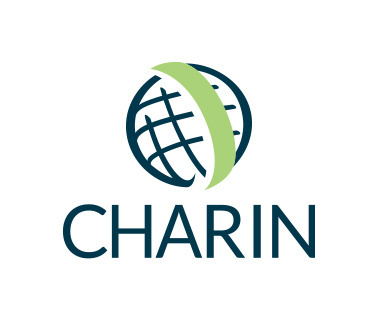
In response to Tesla’s announcement on November 11, 2022 to publicly-release the North American Charging Standard (NACS), the Charging Interface Initiative (CharIN e.V.) and its CharIN North America Chapter (operating as CharIN Inc.), would like to issue the following statement. CharIN is the largest global association focused on the electrification of all forms of transportation based on the seamless and interoperable charging experience enabled by the Combined Charging System (CCS) and the Megawatt Charging System (MCS). CCS and MCS are the global standards for charging vehicles of all kinds.
CharIN applauds Tesla for including DIN 70121 and ISO 15118-02 communication standards for the NACS proposal. We also appreciate Tesla’s effort to move the e-mobility market forward even faster than it is moving now.
However, we encourage stakeholders to investigate ways to focus on market acceleration rather than the creation of yet another form factor alternative, which will lead to further consumer confusion and delay EV adoption. CCS has gone through many years of rigorous standardization processes, which is a required activity for any new standard proposal. After a decade of collaborative work, the domestic and international EV industry has aligned around CCS. For example:
- Nearly 300 domestic and international CharIN members are using or investing in CCS.
- The majority of major domestic and international automakers are using and supporting CCS, including Audi, BMW, Daimler, Ford Motor Company, General Motors, Honda, Hyundai/Kia, Lucid, Lotus, Mazda, MAN, Mercedes-Benz, Navistar, New Flyer, Nikola, Nissan, PSA Groupe, Proterra, Renault, Rivian, Scania, Stellantis, Subaru, Suzuki, Tata Motors, Tesla, Toyota, Volvo, and Volkswagen.
- In the U.S., CCS is used in over 50 passenger vehicle models.
- The Combined Charging System can connect to all AC charging stations without an adapter via the J1772 standard.
- Worldwide, there are 61,000 DC fast chargers using the CCS connector, compared to 40,000 Tesla Super chargers according to data published by CharIN and Tesla.
- In North America (including the U.S. and Canada) there are 18,880 CCS connectors compared to 18,405 Tesla Super charger connectors and 178,926 J1172 connectors compared to 15,529 Tesla destination connectors, according to recent Plugshare data (includes public and restricted use).
At a minimum, the Tesla proposal will have the hurdle of passing through an established standardization process via standards bodies, such as ISO, IEC, and/or SAE. It is also important to acknowledge the challenges of creating new standards or changing the existing standards, such as:
- Market disruption: Creating a standards proposal will disrupt the EV industry by causing companies to divert energy and resources towards integrating and implementing another standard into vehicles and chargers, which typically have a product develop cycle of 3-6 years.
- Policy and regulatory disruption: Creating an additional standard proposal will likely disrupt existing regulatory and policy discussions and delay important EV charging infrastructure decisions and investment at local, state, and federal levels. Decisionmakers should not divert EV charging infrastructure funding for non-industry standard charging systems.
- The pathway to standardization: CharIN supports a rigorous peer review process applied to the development of standards, such as ISO, IEC, and SAE. The current CCS standard, including connectors and related communications protocols, is a true international standard that has gone through the standardization process described above. Any newly introduced idea, including a mechanical improvement to the existing CCS connector design, would have to follow the same process before the industry can safely adopt it. There is a significant chance that what is ultimately approved in the standards development process may not align with what is currently proposed by Tesla.
We strongly encourage Tesla, as a CharIN member, to work with CharIN’s membership base, the standards organizations, and others to accelerate the adoption of a fully interoperable EV charging solution to transition to electric vehicles more quickly. Ecosystem-driven collaboration is a proven method to create true standards accepted and adopted by a multitude of stakeholders, as well as a testing and conformance infrastructure to guarantee interoperability in the field. This is how CharIN, an inclusive, industrywide coalition representing nearly 300 leading e-mobility stakeholders, seeks to accelerate the e-mobility market in North America.
About CharIN Inc.
The Charging Interface Initiative (CharIN) Inc. serves as a leading industry association bringing CharIN’s global approach to decarbonization through the electrification of North American transport. Convening together industrywide e-mobility stakeholders including automakers, charging station manufacturers, component suppliers, energy providers, government officials, and grid operators, our organization assists members in coordinating, advancing, and advocating for interoperability across electric vehicle charging infrastructure. Driving forward the widely-adopted Combined Charging System (CCS) and the Megawatt Charging System (MCS) platforms, CharIN works to ensure all electric vehicles – from light-duty passenger cars to freight trucks, e-ferries, ships, and planes – can work seamlessly with available charging stations and services. CharIN serves as a pivotal, unified voice for industry-standard, interoperable charging technologies and best practices, working with federal, state, and local regulatory agencies and policymakers to unleash innovation and encourage the rapid adoption of electric vehicles in municipal, commercial, and private use.
About CharIN e. V.
The Charging Interface Initiative (CharIN) is the leading global association with nearly 300 international members dedicated to promoting interoperability based on the Combined Charging System (CCS) and the Megawatt Charging System (MCS) as the global standard for charging vehicles of all kinds. Our goals include expanding the global network of companies supporting CCS, drafting requirements to accelerate the evolution of charging related standards, and defining a certification system for all manufacturers implementing CCS in their products.

